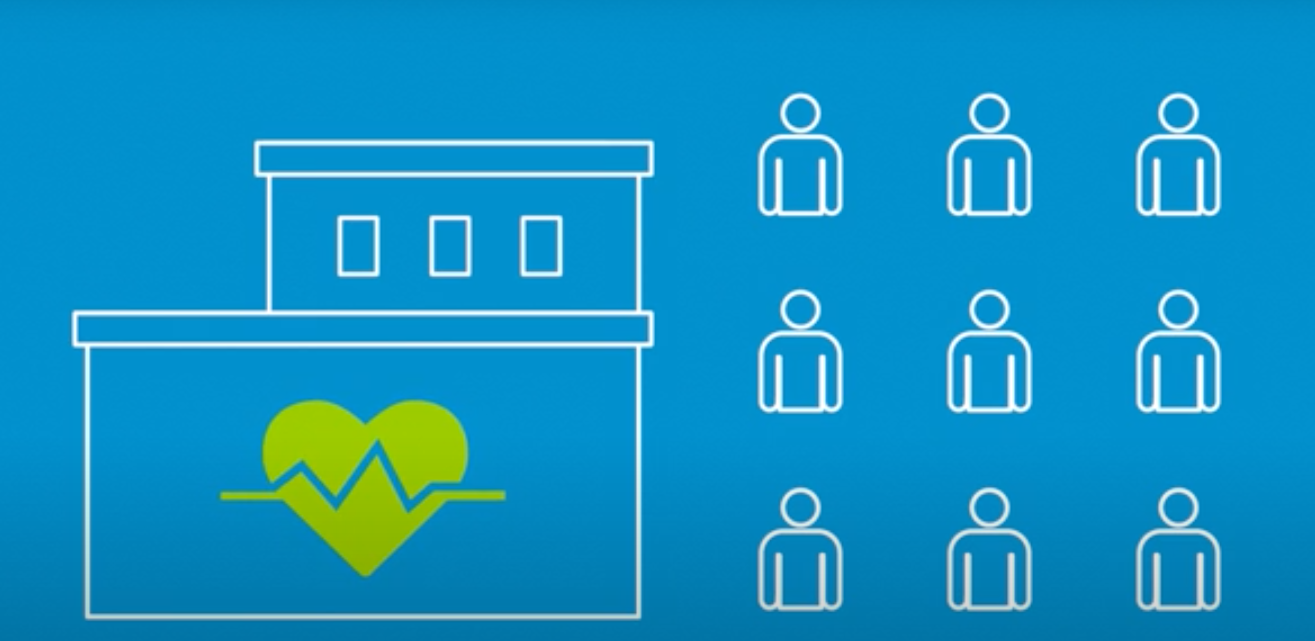FinHealth Spend Research 2021
The FinHealth Spend Research estimates what U.S. households pay in interest and fees for common financial services every year. The majority of U.S. households were struggling financially before COVID-19, and the pandemic added pressures that affected access to everyday financial products. This report analyzes how the hundreds of billions Americans spent on interest and fees in 2020 varied by race, income, and other demographic factors, with specific insights into the increased burdens borne by financially struggling consumers.
Member Town Hall
Watch the 2021 Member-exclusive Town Hall on demand, featuring insights from fellow Members demonstrating how focusing on financial health can unlock powerful impacts for customers, employees, and communities.
Member Content Sharing
Highlight your expertise by sharing insights, research, and materials to be accessed by other Members of our Financial Health Network.
Benefits
Member benefits
Fintech Innovation Leader Joins the Financial Health Network
Hannah brings a passion for financial health and knowledge of startups, nonprofits, financial services, and the fintech ecosystem at large. She will be responsible for the strategic direction of our Innovation practice, including the Financial Solutions Lab.
Risky Business: Pandemic Underscores How Strong Personal Financial Health Can Build Small Business Resilience
It’s critical that small businesses — especially those in underserved communities — get support from government and philanthropies to rebuild, and that owners also receive personal financial health support so they can build resilience over time and weather future financial shocks.
What Banks Need From Their Technology Stack to Support Consumer Financial Health
Explore the current landscape and opportunities to help financial institutions overcome these barriers to power effective finhealth tools.
Educating the Next Generation: Using KPIs to Assess the Impact of Student Financial Education Programs
The Financial Health Network partnered with Michigan State University Credit Union (MSUFCU) to analyze its financial education programming for high school and college students, revealing some signs of positive impact on business outcomes and the students’ financial health.
Beyond Messaging: Financial Health Is No Longer a Nice-To-Have
We’ve long known from research and practice about the business case for advancing financial health. The coronavirus escalated the already precarious state of financial health of Americans everywhere and Financial Health Network Members took notice.
A Broken Criminal Justice System Impacts Financial Health, Too
By Josh Sledge, Senior Director and Arjun Kaushal, Associate, Financial Health Network The tragic murder of George Floyd at the hands of police has once again brought the inequities of the criminal justice system into focus. The violence captured on film has rightfully drawn a passionate response, as protestors demand justice for Floyd and an…
Edquity Case Study: Supporting Students with Innovative Emergency Aid
Each year, millions of college students struggle to stay in school not because of academic difficulties, but because of financial challenges. The Financial Health Network is dedicated to furthering solutions to help improve student financial health and increase academic success. In this case study, we explore how Edquity – an innovative student support app – is working to reduce the number of students who dropout of college because of a financial emergency of $500 or less.
Strengthening the Student Safety Net During COVID-19
Even before the pandemic, the lives of financially struggling students were overwhelmingly complex. For financially vulnerable students, a disruption this large can have devastating long-term impacts, including failure to re-enroll once the pandemic ends.
How Coronavirus Highlights the Insurance Gap for Gig Workers
Gig workers comprise a growing portion of the American workforce, with 1 in 10 U.S. workers relying on gig work as their primary source of income. Without adequate health insurance, many gig workers are unprepared to deal with the financial shock of a major injury or illness.
Webinar: The Role of Trust in the Financial Data Ecosystem
During this webinar, attendees heard from a leading financial technology company about the importance of being a trusted steward of consumers’ data and discussed what good data governance means for consumer financial health
U.S. Financial Health Pulse 2019 Trends Report
How is the financial health of Americans changing over time? In a year-over-year analysis, the second annual U.S. Financial Health Pulse report reveals that the majority of Americans are still unprepared for financial shocks.
The Future of Worker Benefits — Seeking the Next Generation of Workplace Wellness Solutions
By Jose Galindo, Workplace Financial Health Program Director, Financial Health Network I know first hand — as the founder and former CEO of moneymio.com, the first bilingual online platform dedicated to empowering Latinos in the United States with personal finance education — the challenge young fintech companies face, especially those who are focused on improving the financial health of…
Supporting Financial Health for Millennials and Women in the Workplace
Millennials and women have unique financial needs. This report sheds light on the needs and preferences of these employees, helping employers develop targeted solutions that can set them apart in a competitive marketplace.
Retronovation #4: Compartmentalizing Emergency Savings
Keeping a cache of savings for use in emergencies is hard. And it’s hardest for low and moderate income households whose incomes are often volatile and who thus need to tap emergency savings most often.
2019 Member Kit
Announce your membership publicly and internally using the Press Kit, learn about member-only research and events.
The U.S. Financial Health Pulse: Establishing a Baseline and Looking Ahead
In November, we released the inaugural 2018 Baseline Report which established a baseline to track changes in financial health over time. In 2019, we plan to build upon the foundation we laid this year.
Measuring Financial Health Part 2: 6 Tips for Measuring Your Customers’ Financial Health
Here are six tips discussed in our recent webinar featuring innovative companies who have been using our FinHealth Score Toolkit to measure their customers' financial health.
Homeowners and Renters Insurance Spotlight
This brief takes a closer look at the homeowners and renters insurance coverage, acquisition channels, knowledge, and claims experience of American consumers, with a particular focus on low- to moderate-income (LMI) consumers.
Insurtech for Financial Health
Explore three major insurtech advances that could help more Americans weather financial shocks successfully, as well as potential pitfalls for insurers working to align business incentives with customer needs.
2018 Financial Health Leaders
The Financial Health Network’s Financial Health Leaders program recognizes members that are at the forefront of financial health measurement.
Redefining Student Success: Community Colleges and the Financial Health Journey
Actively supporting student financial health is a mission-critical investment for community colleges. This report provides a roadmap to help community colleges navigate that journey.
5 Tips for Measuring Financial Health
In 2017, 22 Financial Health Leaders measured the financial health of their customers, clients, or employees. While methodologies and results varied widely, 5 common themes ran across the entire cohort.
Amy Cox Household Profile: Living Paycheck to Paycheck
U.S. Financial Diaries Case study: Amy Cox is a white 34-year-old single mother of two. She lives with her children, Hailey, 9, and Andy, 8, near Cincinnati, OH. A natural caregiver, Amy works at a day care center.
Measuring Financial Health of Members and the Community
Learn how UFCU is measuring its members’ and employees’ financial health and how it plans to measure the health of the community at large.
Employee Financial Health
This paper addresses how employers can develop robust employee financial health strategies. By supporting the financial well-being of their workers, employers have the ability to promote staff engagement, improve productivity, and strengthen their brand reputation.
Member Exclusive: NGO and Non-profit Scan
Consumer Data Sharing Principles: A Brief on the Framework for Industry-Wide Collaboration
Over the last two decades, the emergence of new intermediaries that aggregate data from numerous sources has enabled financial services providers of all kinds to provide consumers with a more complete view of their financial lives. – See more at: http://cfsinnovation.org/research/consumer-data-sharing-principles-a-brief-on-the-framework-for-industry-wide-collaboration/#sthash.oYX1cTQi.dpuf
Straight-Talk: Successful Messaging for Secured Credit Cards
Earlier this year, the Financial Health Network worked in partnership with Visa to explore challenges and innovation within the secured credit card market.
The Financial Health Network Comment Letter on Mobile Financial Services Strategies
The Financial Health Network is submitting this letter in response to the request for comments on “Mobile Financial Services Strategies,” issued by the Federal Deposit Insurance Corporation (FDIC) and published on May 3, 2016.
Prepaid Cards and the Financially Struggling Majority
Designing High-Quality, Small-Dollar Credit: Insights from the Financial Health Network’s Test and Learn Working Group
Millions of Americans lack access to high-quality, affordable credit. Many of the small-dollar loans available to consumers are high-cost, low-quality products that often lead borrowers into a cycle of repeat usage and mounting debt.
The Financially Unengaged, a Consumer Financial Health Segment
A whopping sixteen percent of the country is unengaged with their financial situation. This segment earns its name from these consumers’ lack of awareness about their financial lives and their low level of engagement with traditional financial services.
Dispatch from D.C.—August 2015
The Financial Health Network Comment Letter on New York State Department of Labor Payroll Debit Cards
The Financial Health Network recognizes that access to high-quality financial products are crucial to help consumers improve and maintain their financial health.
Consumers and Credit Scores: Understanding Consumer Confusion to Target Solutions
This research takes a look at an important component of consumer financial health: the credit score. The Financial Health Network appended two objective measures of credit-worthiness to the Consumer Financial Health Study.
The Financial Health Network Comment Letter on Department of Defense’s Military Lending Act
The Financial Health Network believes that access to high-quality financial services is necessary for consumers’ financial health.
The U.S. Financial Diaries Methodology: The financial lives of low-income Americans
The U.S. Financial Diaries (USFD) is a research study collecting detailed financial data from more than 200 low- and moderate-income households over the course of a year.
Annual Report 2012
For eight years, the Financial Health Network has championed innovative strategies for meeting the needs of underbanked consumers
The Rodriguez Family Household Profile: Extended Family Strives to Get Ahead
U.S. Financial Diaries: The Rodriguez family is a multigenerational household living in a small town near San Jose, California. Maria Rodriguez, 60 years old, lives with her husband Dean, 75; her mother, Regina, 83; and her two sons, Martin, 36, and Daniel, 34.
Piggymojo: The Thrill of Impulse Savings
Armed with a Financial Capability Innovation Fund grant from the Financial Health Network, Piggymojo is transforming the way people think about savings.
The Financial Health Network Comment Letter on CFPB’s Trial Disclosures
The Financial Health Network realizes that information disclosure is a key part of the financial capability equation, and we also believe that for information to lead to behavior change it needs to be relevant, timely, actionable, and ongoing.
D2D Fund: Save to Win – The Success of Prize-Linked Savings
Many families are faced with critical choices when it comes to managing household income. General expenses and entertaining or ‘fun’ purchases often overshadow important financial priorities.
National Community Tax Coalition (NCTC) Case Study
The National Community Tax Coalition is a national network dedicated to strengthening economies, building communities, and improving lives through tax assistance and asset building.
Infographic: Compass Guide to Prepaid
Discover the Compass Guide to Prepaid, with insights into the increased use of prepaid cards and the growing need for guidance around developing high-quality prepaid products.






























